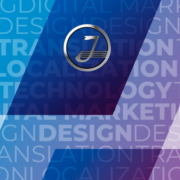Who Are These People? Employees of the Future?
Today, the translation industry is growing faster than ever before. The widespread introduction of new technologies and innovative processes is opening up new horizons for both language service providers international clients. Despite the unprecedented development of process automation and long-term relationships with clients, success would be impossible without talented and dedicated employees. Employers are therefore obliged to respond to modern challenges and revise their traditional approaches to employee hiring and incentives.
We frequently meet with candidates for entry- and high-level jobs that require certain skills and experience. When talking to potential employees, we have noticed a number of interesting aspects and trends that we would like to share with you.
Entry-level jobs often attract recent college graduates, andwe actively collaborate with leading educational institutions. This approach offers an unquestionable advantage: we can avoid “reteaching” and “raise” specialists with the exact industry knowledge we need.
It is no secret that recent language graduates do not always have a clear idea of how the industry works or the endless possibilities that are available to them. In addition to actual translator jobs, there are a number of other roles with a strong language component, such as editor, proofreader, or translation quality control specialist. Not many people know that in addition to the aforementioned “conventional” jobs, the industry now offers a wide range of management positions, such as translation and interpreting project managers, managers of DTP, design, gaming, and filming projects, resource managers, and testers and engineers with a detailed understanding of specialized CAT tools. As you can see, there are an unlimited number of applications for language skills out there!
Another trend we’ve noticed is that the old generation of language professionals is being replaced by a new one. Generation Z is replacing millennials on the job market. Gen-Z professionals were born in the Internet era and can’t imagine their lives without gadgets and an online presence. They want a job that they are interested in and to be appreciated by society for their uniqueness. The word “job” is not entirely appropriate in this context. It’s best to say that they must be interested in spending time independently creating something technology-based without a cloud of routine tasks hanging over them. Their motto may be described as: “DIY” or “I create future technologies.”
These trends are forcing employers to revise their practices for hiring employees from this new generation. It’s not easy to get these candidates excited about a job, and it’s even harder to sustain their interest for long periods of time. While being involved in the development and introduction of the GTP platform, employees have to monitor routine processes within every project, talk to the project team, correspond with clients, and maintain the ERP Janus database on a daily basis.
We believe that the future lies in technological development and expect the new generation not only to easily learn to use Janus’s existing technological solutions, but also to approach us with lots of innovative ideas that will revolutionize our concept of translation in the future. We expect managers to be multi-taskers interested in switching between technical and linguistic tasks and able to find compromises between client requirements and company policies; people who enjoy long-term developments and small translation projects, and who possess the knowledge and emotional flexibility to interact with people from different industries and representing different professions, reading them and anticipating their expectations.
Janus has set itself an ambitious goal to find unique candidates with these basic skills, as well as a desire to grow and a strong focus on results. In turn, we are ready to provide all-round support with training and adaptation within our company. Moving with the times, we engage our new employees at work and using various training approaches, including the 4Cs: a focus on the most important skills for today’s specialists: collaboration, creativity, communication skills, and critical thinking.





